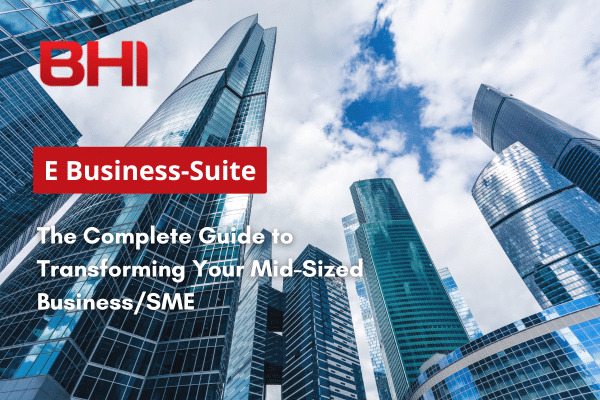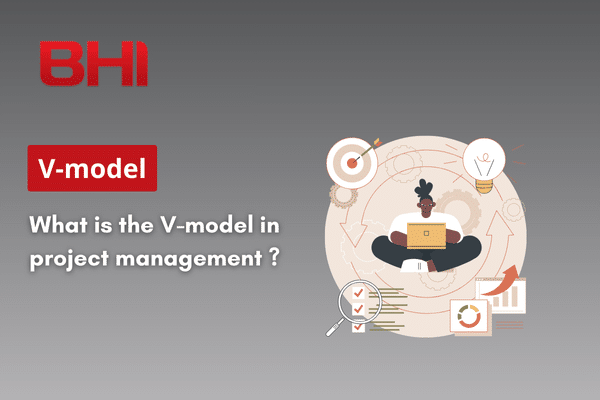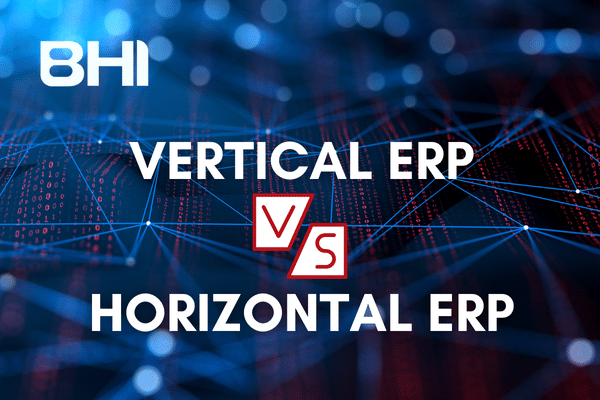In an economic environment where 87% of French mid-market companies plan to invest in their digital transformation in 2025, choosing an ERP becomes strategic. Oracle E-Business Suite (EBS) stands out as a reference solution, with public data showing approximately 19,000 referenced companies, with strong adoption among mid-size to large-scale organizations. But what makes this solution so special for mid-sized companies? How can it concretely transform your daily operations?
Whether you’re leading a growing SME or a mid-market company looking to optimize its processes, this article will provide you with all the answers about Oracle EBS, its features, and most importantly, the return on investment it can generate for your organization.
What is Oracle Business Suite ?
Oracle Business Suite, more commonly known as Oracle E Business Suite, represents much more than simple management software. It’s a complete ecosystem of enterprise applications that orchestrate all your business processes on a unified platform. This solution combines advanced functionalities for finance, supply chain, human resources, and many other essential areas.
The essential components of Oracle EBS
The intelligent modular architecture includes more than 200 available modules, allowing progressive activation according to your specific needs. This native interconnection between all modules ensures total data and process consistency. Independent component updates ensure continuous evolution without major disruption to your activity.
Oracle’s functional coverage is particularly comprehensive. In finance, the solution manages general, auxiliary, and analytical accounting, as well as treasury. For supply chain, it covers purchasing, inventory management, planning, and distribution. Production benefits from MRP functionalities, scheduling, and quality control. Human resources have modules for payroll, talent management, and training. Finally, CRM integrates sales, marketing, and customer service in a unified approach.
The technologies embedded in Oracle EBS include artificial intelligence for predictive analysis, machine learning for automating repetitive tasks, real-time analytics capabilities, and native mobility allowing access from any device.
Is Oracle E Business Suite really an ERP ?
Oracle EBS is considered a complete ERP covering finance, supply chain, HR, purchasing, CRM, projects, etc. It is indeed a mature suite used by thousands of organizations; its functional coverage is widely documented on Oracle sites and by independent analysts.
Characteristics of a true ERP
Oracle EBS’s unique and centralized database completely eliminates data silos, ensuring 100% information consistency and offering real-time visibility on all company operations. This architecture allows complete traceability and incomparable data reliability.
Processes are integrated end-to-end, covering the entire activity cycle: from customer order to collection, from purchase request to supplier payment, and from production planning to final delivery. This native integration eliminates re-entries and drastically reduces error risks.
Practice standardization is another fundamental pillar. Oracle EBS integrates sectorial best practices while offering predefined but customizable workflows. Regulatory compliance is native, meeting legal requirements of many countries and sectors.
What is the Oracle EBS system ?
The three-tier architecture (database, application servers, web/mobile client presentation) ensures modularity and scalability. Thousands of native APIs and workflows facilitate integration with other systems and automation, advanced security functions are available according to configuration.
Detailed technical architecture
The Oracle database layer forms the system’s foundation. It manages millions of transactions per day with response times under 2 seconds. Security is ensured by AES-256 encryption and a complete audit system. The guaranteed availability of 99% ensures exceptional service continuity.
The application layer, or middle tier, hosts OC4J and WebLogic application servers. More than 5,000 APIs are available for business services, allowing flexible integration with other systems. The workflow engine ensures intelligent process automation, while native SOA architecture facilitates integration via Web Services.
The presentation layer offers an HTML5 web interface with responsive design, perfectly adapting to all screens. Native iOS and Android mobile applications allow complete mobility access. Code-free customization is possible thanks to the OA Framework, and accessibility respects WCAG 2.1 standards.
Daily operation for a mid-market company
Let’s take the concrete example of a customer order to illustrate the system’s efficiency. The salesperson enters the order on their tablet in 30 seconds. The system automatically checks customer credit and instantly reserves necessary stock. If needed, a production order is automatically generated. Delivery is optimally planned, invoicing occurs automatically upon shipment, and reminders are automated in case of non-payment. This process, which previously required 8 manual steps, now comes down to a single action.
What is Oracle iProcurement ?
Oracle iProcurement radically transforms the purchasing function of mid-market companies and SMEs by digitizing the entire procurement process. This solution, an integral part of Oracle EBS, revolutionizes how companies manage their purchases. Our experience shows it’s often one of the modules generating the fastest ROI.
Key features for your business
Oracle iProcurement’s intelligent catalog centralizes pre-negotiated products and services, allowing automatic price comparison. The system offers suggestions based on purchase history and integrates directly with supplier catalogs, thus offering real-time access to the latest offers and conditions.
The purchasing process is considerably simplified thanks to an intuitive e-commerce type interface. Users can validate their cart in just three clicks. The approval circuit is fully configurable according to your organization, and push notifications on mobile ensure maximum responsiveness from approvers.
Control and compliance are guaranteed by automatic respect for allocated budgets and integration of the company’s purchasing policy. Complete traceability of each transaction and real-time reporting offer total visibility on expenses.
Measurable impact for mid-market companies
Purchasing function automation via Oracle iProcurement generally leads to significant reductions in operational cost and processing time, reported by various clients according to their initial organization. Their contract compliance rate reaches 95%, while off-process orders decrease by 50%. These improvements translate into substantial savings and increased operational efficiency.
What is Oracle PGA used for ?
For mid-market and SME decision-makers, understanding Oracle PGA (Program Global Area) allows you to significantly optimize your ERP performance. This technical component, often unknown, plays a crucial role in daily user experience. In our practice, we find that PGA optimization can radically transform system performance.
Accessible explanation for non-technicians
Oracle PGA can be compared to each user’s personal workspace in the system. Each connection has its own dedicated memory area, ensuring optimal performance even in case of simultaneous intensive use.
PGA’s main functions include individual working memory management, data sorting acceleration for complex reports, frequent query caching, and automatic resource adjustment according to system load.
The business impact is considerable: reports are generated three times faster, real-time dashboards remain fluid even with many connected users, mass Excel exports are performed without slowdown, and the system maintains its performance even during high activity periods.
Best practices for mid-market companies
Our recommendation is that fine memory management (PGA) contributes to operational fluidity and report generation speed in Oracle EBS. Best practices recommend close monitoring of allocations and adjustments based on activity peaks.
How does Oracle software work ?
Understanding how Oracle EBS works allows executives to better grasp this solution’s added value for their company. The lifecycle of a transaction perfectly illustrates the system’s efficiency that we implement for our clients.
The lifecycle of an Oracle EBS transaction
Initiation begins with user input via the web or mobile interface. Data is validated in real-time with automatic application of business controls. This instant validation eliminates errors at the source and ensures data quality.
Processing occurs at the application server level, where business rules are automatically applied. Necessary calculations and transformations are executed, and appropriate workflows are triggered according to defined parameters.
Storage in the database is done securely and atomically, ensuring data integrity. Indexes are automatically updated, and replication ensures high system availability.
User feedback is immediate with instant confirmation of the action performed. Notifications are automatically sent to concerned stakeholders, and dashboards are updated in real-time.
Integration with your IT ecosystem
Oracle EBS natively integrates with your entire IT environment. We regularly support our clients in these integrations: connection with Microsoft Office 365 for direct export to Excel and Outlook synchronization, links with banking solutions for automatic reconciliation, implementation of EDI exchanges with business partners, and connection to Business Intelligence tools like Power BI, Tableau or Qlik.
Concrete results
Oracle EBS benefits are measured in both financial and operational terms. At BHI Consulting, with over 200 projects completed since 2010, we have been able to repeatedly measure these tangible gains.
Case Studies : Industrial mid-market company
We recently supported an industrial mid-market company that initially used five different unconnected software systems. Monthly closing required 10 days of work, error rate reached 8%, and inventory visibility was only available with a two-day delay.
After our Oracle EBS implementation, this company now has a single integrated solution. Monthly closing now takes only 3 days, a 70% reduction. The error rate has fallen to 0.5%, representing a 94% decrease. Inventory visibility is now real-time.
The return on investment is remarkable: for an initial investment of €450,000, annual savings amount to €320,000. ROI is achieved in just 17 months, and cumulative gains over 5 years represent €1.2 million.
Measured qualitative benefits
Beyond financial gains, we systematically observe important qualitative benefits. Customer satisfaction increases by 35% thanks to improved on-time deliveries. Overall productivity progresses by 28% thanks to automation of repetitive tasks. Decision-making is transformed by real-time dashboards. System scalability allows for growth support without changing ERP.
Our approach to ensure your project success
The success of an Oracle EBS project largely depends on the quality of support. At BHI Consulting, our approach is structured and based on identifying critical points and adopting business best practices.
Our proven methodology covers the entire project cycle. We start with an implementation strategy based on identifying your specific pain points. Our goal is to help you differentiate uses that can adapt to Oracle standard from competitive issues requiring customization.
Our project management relies on a catalog of standard processes established by our teams, based on sectorial best practices. We organize workshops with your business representatives to converge your processes with these best practices.
We also ensure version upgrades, international deployments, and third-party application maintenance. With our 42 experienced consultants and 120 supported clients, we bring the necessary expertise to maximize the value of your ERP in your specific context.
Conclusion
Oracle E-Business Suite represents much more than a simple ERP for ambitious mid-market companies and SMEs. It’s a true transformation accelerator that unifies, automates, and optimizes all your business processes. With an average ROI of 18 months and productivity gains up to 40%, our solution stands as a strategic investment rather than an IT expense.
The 19,000 companies that already trust Oracle benefit from a decisive competitive advantage: operational agility, real-time visibility, and increased innovation capacity.
To deepen your reflection and discover how this solution can transform your company, we invite you to explore our Oracle eBusiness Suite expertise. Our personalized approach and recognized experience will guarantee successful implementation and support adapted to your specific challenges.
Ready to propel your company towards operational excellence ?
Do you already use Oracle EBS in your company? We would be delighted to hear about your experience! How has it transformed your operations ? Which modules bring you the most value? What advice would you give to companies still hesitating ?
For in-depth expertise and personalized support in your Oracle eBusiness Suite project, discover how we can support you in your digital transformation.


















